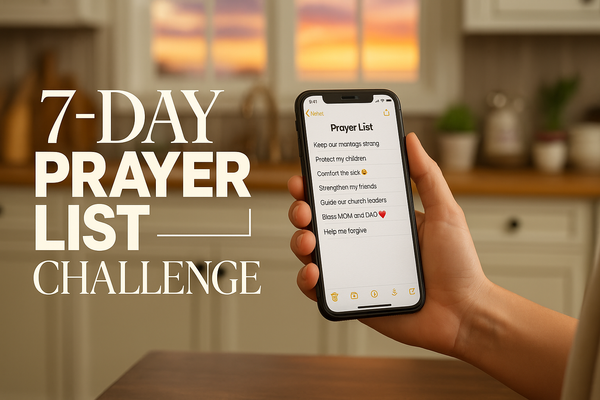Choose A Small Daily Fast to Put the Flesh in Its Place

At first glance, it’s just a list.
But this small, simple daily fasting practice has been a lifeline for Christians across centuries —
not just monks,
but ordinary believers who long to train their bodies and souls
to follow Christ instead of their cravings.
What Is a Small Daily Fast?
It’s a humble, body-level practice drawn from the wisdom of the Early Church Fathers:
each day, you deny the flesh in some small, concrete way —
not to punish yourself,
but to remind your body it’s not your master.
The early Christians taught that the flesh is like an untrained animal:
if you give it everything it wants, it drags your soul wherever it pleases.
But if you train it gently, with consistency,
you create space for the Holy Spirit to lead.
Why Do It?
Because Scripture warns us plainly:
“Do not love the world or the things in the world.
If anyone loves the world, the love of the Father is not in him.” — 1 John 2:15
The daily fast helps you break attachment to:
- The desires of the flesh (comfort, excess, indulgence)
- The desires of the eyes (stimulation, distractions)
- The pride of life (self-centered control, independence)
It’s not about dramatic gestures —
it’s about quiet, regular surrender.
Day by day, your body learns:
I eat to live, I do not live to eat.
I own a phone, but it does not own me.
I enjoy comforts, but they do not rule me.
What Happens When You Practice It?
“Whoever does the will of God abides forever.” — 1 John 2:17
As you fast in small ways each day, you:
- Loosen the grip of cravings and distractions
- Grow stronger in patience and self-control
- Make room to hunger and thirst for righteousness
- Teach your soul to love God above all
Over time, it becomes a rhythm that helps you abide in Christ —
not just during set devotional times,
but inside ordinary, physical moments:
meals, media, conversations.
Where Did It Come From?
The small daily fast draws on deep biblical principles:
- Jesus Himself fasted and taught His disciples to fast (Matthew 6:16–18)
- Paul wrote, “I discipline my body and keep it under control” (1 Corinthians 9:27)
- The early Christians refined daily fasting into a way of life —
teaching believers to combine inner humility with outer acts of restraint,
so the body becomes a servant to the soul.
9 Daily Fast Ideas
Each morning, choose one of these to do that day:
1. Skip breakfast
2. Eat only half portions at one meal
3. Limit Personal Spending (No Non-Essential Purchases)
4. Complaining and Grumbling Fast
5. Drink only water (no coffee, tea, juice, soda)
6. iPhone / smartphone fast (Half Day)
7. Social media blackout (all day or time-blocked)
8. Entertainment blackout (no TV, Netflix, YouTube, podcasts)
9. Silence fast (limit talking to only necessary words)
How Do I Start? (9 Daily Fast Options)
Each morning, choose one of these to practice that day:
- Skip breakfast
Begin the day with prayer and water, delaying all food until midday. - Eat only half portions at one meal
Take your usual meal, cut the portion in half, and offer the hunger to God. - Limit personal spending (no non-essential purchases)
Buy only what is necessary today; resist impulse or comfort shopping. - Complaining and grumbling fast
Commit to no complaining, venting, or negative speech; practice gratitude instead. - Drink only water (no coffee, tea, juice, soda)
Let your thirst awaken a deeper longing for Christ, the Living Water. - iPhone / smartphone fast (half day)
Turn off or set aside your phone for half the day; step away from constant reach and noise. - Social media blackout (all day or time-blocked)
Stay off all social platforms to create space for prayer, stillness, or reflection. - Entertainment blackout (no TV, Netflix, YouTube, podcasts)
Skip entertainment; use the time for silence, Scripture, or quiet contemplation. - Silence fast (limit talking to only necessary words)
Speak only when needed; restrain unnecessary words, gossip, or chatter.
Offer it to God as a prayer:
“Lord, today I surrender this area of comfort and desire to You.
Train my body to serve, not to rule.”




